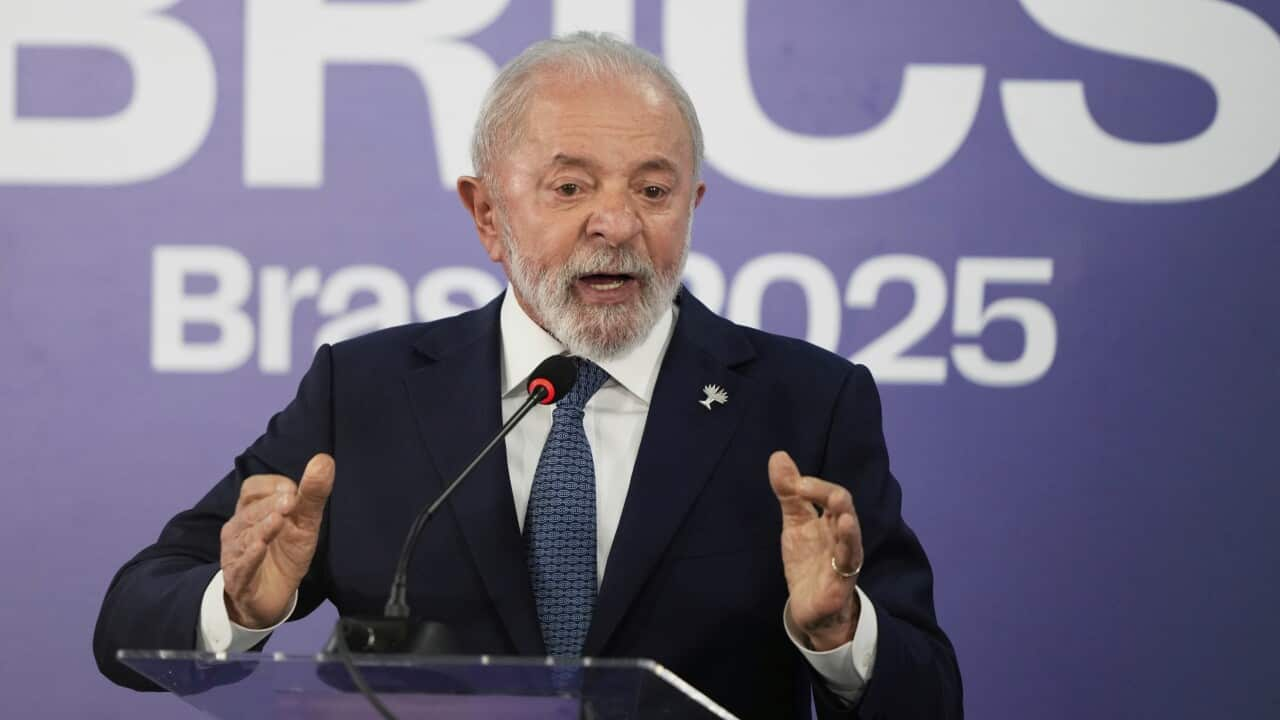Brazilian President Luiz Inacio Lula da Silva says he wants to find a diplomatic solution to United States President Donald Trump's threat of 50 per cent tariffs on Brazilian exports, but vowed to reciprocate like-for-like if they take effect on 1 August.
"We'll first try to negotiate, but if there's no negotiation, the law of reciprocity will be put into practice," Lula said in an interview with local network Record TV, citing a law Brazil's Congress recently passed giving the president powers to retaliate against trade barriers.
"If they're going to charge us 50, we'll charge them 50."
Lula is unlikely to announce any retaliatory measures until the tariffs are implemented, said a Brazilian diplomat who requested anonymity to describe internal government debates.
"We have until August 1," the source said.
On Thursday, Trump also said the US would impose a 35 per cent tariff on imports from Canada beginning 1 August and planned to impose blanket tariffs of 15 per cent or 20 per cent on most other trading partners.
In a letter released on his social media platform, he told Canadian Prime Minister Mark Carney the rate would go up if Canada retaliated.
It marked the latest in a series of new tariffs Trump has set in recent days, with allies including Japan and South Korea also targeted.
Canada is the second-largest US trading partner after Mexico, and the largest buyer of US exports.
Trump's tariffs on Brazil
In a letter to Lula published on Thursday AEST, Trump linked the tariffs to Brazil's judiciary launching legal proceedings against former president Jair Bolsonaro, who is on trial on charges of plotting a coup to stop Lula from taking office in 2023 after hundreds of pro-Bolsonaro supporters stormed Congress.
Trump said Bolsonaro was the victim of a "witch hunt".
Lula criticised Bolsonaro for perpetuating claims of legal persecution, stressing the former president's son, Eduardo Bolsonaro, took leave from his role in Congress at least in part to head a campaign in his father's favour in the US.
"The former president of the Republic should take responsibility, because he is agreeing with Trump's taxation of Brazil. In fact, it was his son who went there to influence Trump's mind," Lula said.

In a social media post, Bolsonaro said Trump's letter announcing tariffs was received with "a sense of responsibility," adding he respects and admires the US government.
Bolsonaro argued the US measure was a reaction to Brazil's distancing from freedom. "This would never have happened under my government," he wrote.
Lula said the government will set up a committee with Brazilian business leaders to "rethink" the country's commercial policy with the US.
He mentioned Brazil's new reciprocity law, passed just after Trump made his first tariff announcements in April, that allows the government to respond with reciprocal measures in case other countries impose unilateral barriers to Brazilian products.
Beyond imposing counter tariffs, the law would also allow Lula to restrict imports and investments and suspend intellectual property rights from US firms, among other measures.
How would the Brazil tariffs work?
The US is Brazil's second-largest trading partner after China and has a rare trade surplus with Latin America's largest economy.
Some market sectors, including aviation and banking, felt immediate pressure.
But the tariffs could inflict pain in the US too, disrupting food prices, given Brazil's role as a major agricultural exporter of coffee, orange juice, sugar, beef, and ethanol.
The proposed 50 per cent tariff would effectively halt the flow of Brazilian coffee to the US, its largest buyer, four trade sources told Reuters on Friday AEST.
Brazilian industry lobby groups representing sectors such as coffee and oil issued statements on Friday AEST, urging a diplomatic solution.
"We hope that diplomacy and balanced negotiations will prevail, despite ideologies and personal preferences, and that common sense will once again guide the relationship between these two great sovereign nations," Josue Gomes da Silva, the president of Sao Paulo industry group Fiesp, said in a statement.
For the latest from SBS News, download our app and subscribe to our newsletter.

